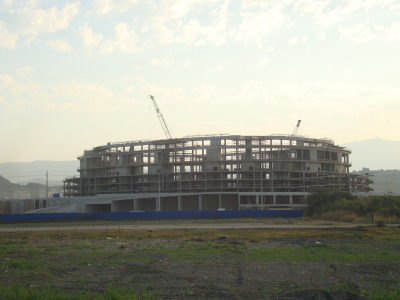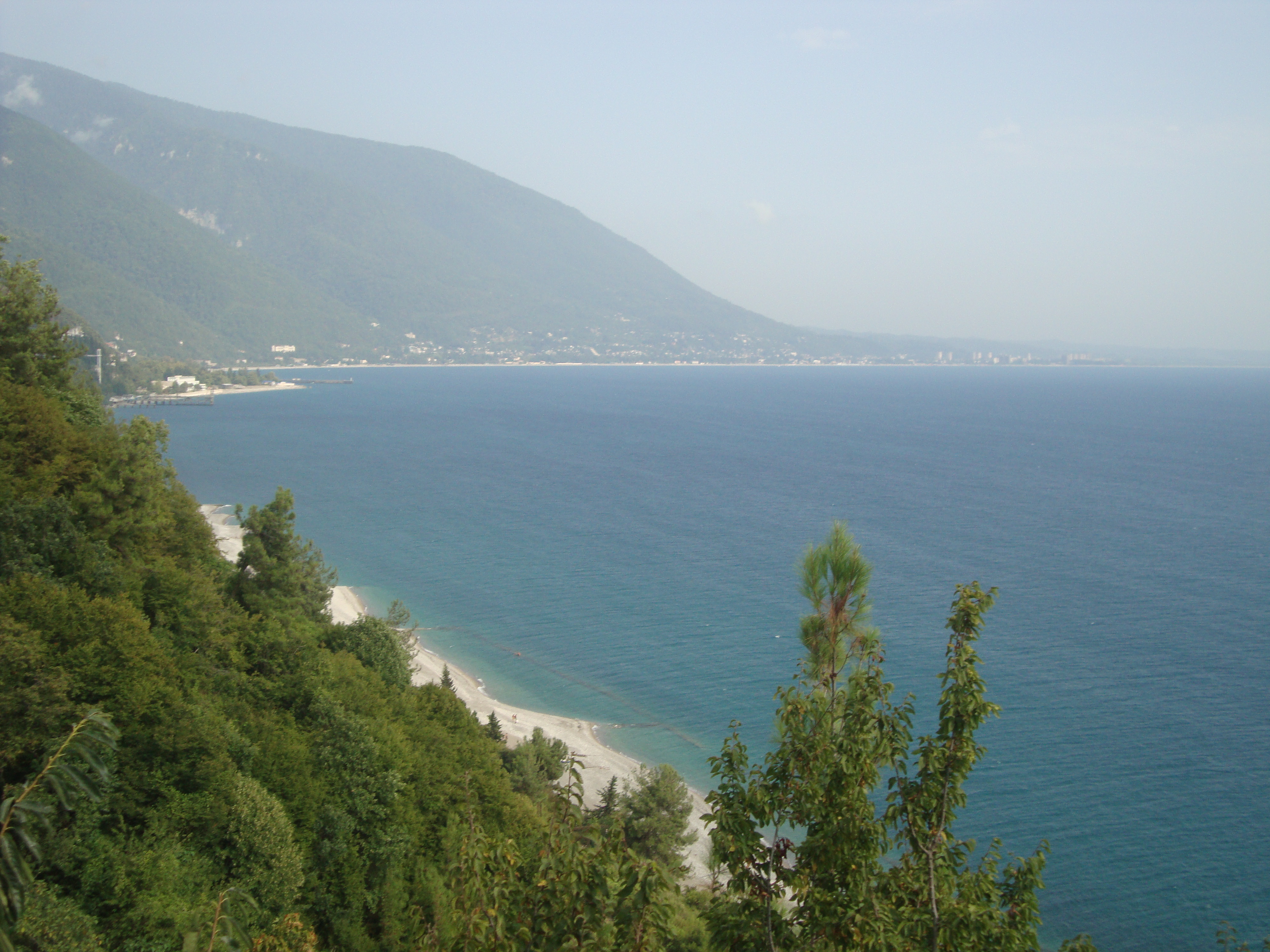The Republic of Abkhazia sits just a short distance from Sochi, Russia. In fact, many of the event venues and the airport (at Adler) that services Sochi are only several kilometers from the border with Abkhazia. So, with Russia's commitment of billions to the 2014 Winter Olympiad that will be held in Sochi and the nearby mountains, there is a tremendous amount of development occurring on Abkhazia's doorstep.
When traveling from Sochi to Abkhazia, there is a very noticeable change from Russia. The Russian side of the border is overwhelmed with construction and traffic, There is only one main north-south arterial in the largest and most important Russian Black Sea resort city.

Abkhazia has far fewer people than Sochi, but has a spectacular coastal road that follows the sea down to Gagra. It is reminiscent of a sub-tropical Big Sur, California.

Abkhazia does not have the hotels and resorts that have sprung up on Russia's coastline. Due to isolation from the international community, Abkhazia has very few quality rooms. But with the security guarantee from the Russian government, Russian, Ukrainian and other tourists feel safe to return to what many view as the ultimate vacation spot. In 2009, tourism in Abkhazia rose more than 100%. I don't think too many places in the world experienced that kind of growth.
Abkhazia has an estimated $10 billion in investment needs. There was very little done in the late Soviet period and through the 1990's the country was isolated, despite its tremendous physical beauty and warm climate. Now all of that has changed and the government has a number of projects that they are seeking investment for. Since most tourists stay in modest guest homes near the beach, there is an obvious need for quality hotels to accommodate the millions of tourists flooding across the border. The port in Sukhum needs to be redeveloped, there are partially finished apartment buildings and with mountains to 14,000 feet there are locations for ski resorts, also. Much of Abkhazia's infrastructure needs to be rebuilt. There are no real shopping centers there for the locals or the tourists. A Russian firm has rebuilt the rail line and it is currently being used to transport gravel to Russia for construction purposes. Limited passenger rail service from Russia just started this summer. The government hopes that flights from Russia will begin this year and a firm is already revamping the passenger air terminal at the airport in Sukhum. Until this summer, tourists came by train or airplane to Sochi (both the station and the airport are located very close to the border) or took cars and buses to Abkhazia from all over Russia. Many people will travel by train for 3 or 4 days from all over Russia to enjoy the beaches and spectacular mountain scenery. But with expanded transportation links, more visitors will come particularly from the colder northern and Siberian cities.
The Rodina Hotel in Sochi has summer rates from about $1,200 to $5,000 per night. This is just a few miles away from the most spectacular coast on the entire Black Sea- Abkhazia. It is only a matter of time until there are competitive properties in Abkhazia. Commercial property in central Sochi costs at least $3 -$$ million per acre. And luxury apartments may run $1million for a 1,000 square feet. Abkhazia is far less costly and has a much greater upside.
 Post a Comment
Post a Comment  Wednesday, October 27, 2010 at 12:28AM
Wednesday, October 27, 2010 at 12:28AM 







